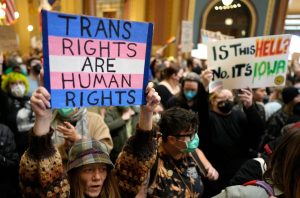Pregnancy and new motherhood are times of great joy and great responsibility. A pregnant woman or new mother is responsible not only for her own physical and financial wellbeing, but for the physical and financial wellbeing of her child. Therefore, when a woman is reprimanded or terminated by her employer for being pregnant or becoming a mother, the woman and her baby newborn baby are deeply impacted by the employer’s discriminatory decisions.
Our laws are intended to protect women from the harmful impact of pregnancy discrimination. Title VIII of the Civil Rights Act of 1964 (“Title VII”) as amended by the Pregnancy Discrimination Act of 1978 (“PDA”); Section 15 of the New York State Executive Law, the Human Rights Law, (“NYSHRL”); and Title 8 of the Administrative Code of the City of New York, the New York City Human Rights Law, (“NYCHRL”) make it unlawful for employers to subject women to discrimination in the workplace because of pregnancy, childbirth, or medical conditions related to pregnancy or childbirth.
Despite these laws, which were implemented for protection, pregnancy discrimination reveals its dreadful impact in many different forms in the workplace. A woman suffers pregnancy discrimination in the workplace when her supervisor, co-worker, client or customer makes offensive, intimidating, or hostile comments or engages in conduct that targets her pregnancy, childbirth, or medical condition related to her pregnancy or childbirth.
A woman also suffers pregnancy discrimination in the workplace when, due to her pregnancy, childbirth, or medical condition related to her pregnancy or childbirth, her employer reduces her work hours, pay, shifts; changes her benefits; refuses to promote her; forces her to take time off, whether paid or unpaid; or disciplines her for taking time off work for pregnancy-related medical appointments or other accommodations. These are some of the most common forms of discriminatory actions that women face due to their pregnancy or childbirth at work.
Moreover, pregnancy discrimination in the workplace is also when an employer refuses to hire her or fires her because of her conditions related to pregnancy or childbirth. These two last forms of pregnancy discrimination are especially devastating for a pregnant woman or a new mother who, upon losing the opportunity to earn or continue earning an income, is faced with the daunting task of figuring out how to earn a living and how to provide her baby with the most basic necessities.
Despite these laws, which were implemented for protection, pregnancy discrimination reveals its dreadful impact in many different forms in the workplace.
Additionally, The NYCHRL, as amended by the Pregnant Workers Fairness Act of 2014 (“PWFA”), requires employers to provide reasonable accommodations to women in the workplace based on pregnancy, childbirth, or related medical conditions, unlike the NYSHRL, which requires employers to provide reasonable accommodations only for pregnancy-related medical conditions, and Title VII, which requires employers to provide reasonable accommodations for pregnant employees only to the extent that non-pregnant employees are provided with the same accommodations.
The New York City Human Rights Commission issued legal enforcement guidance in May 2016 (“Commission Guidance on Pregnancy Discrimination”), which provides broader safeguards for women protected by the NYCHRL. According to the Commission Guidance on Pregnancy Discrimination, employers subject to the NYCHRL, violate the NYCHRL, if they do not engage in a cooperative dialogue with an employee who is in need of a reasonable accommodation for her pregnancy, childbirth, and related medical condition, which includes, but is not limited to: nausea, dehydration, increased appetite, recovery from childbirth, leave, infertility, miscarriage, breastfeeding, post-partum depression, and termination of the pregnancy, or who refuses to provide the employee with the reasonable accommodation, absent a valid undue hardship defense, after engaging in the cooperative dialogue.
The NYCHRL, as defined by the Commission Guidance on Pregnancy Discrimination, demands the kind of protection that women deserve and need with respect to pregnancy, childbirth, and related medical conditions.
If the employee’s request for leave creates an undue hardship for the employer, under the Commission Guidance on Pregnancy Discrimination, the employer must consider an alternative accommodation, which may include a shorter leave, reduced work schedule, or work from home. Per the Commission Guidance on Pregnancy Discrimination, an employer is required to provide certain minor accommodations such as minor changes in work schedule, adjustments to uniforms, water and snack breaks, permitting the employee to eat at her desk, extra bathroom and rest breaks, physical modifications to a work station. Other reasonable accommodations, intended to permit a woman to continue working despite limitations include adjustments of start or end time, reduced or modified work schedule, desk duty or light duty, and transfer to an alternative position.
The NYCHRL, as defined by the Commission Guidance on Pregnancy Discrimination, demands the kind of protection that women deserve and need with respect to pregnancy, childbirth, and related medical conditions. The NYCHRL should serve as an inspiration for the birth and amendment of laws across our country that are necessary for the protection of all working women from unlawful discrimination on the basis of pregnancy, childbirth, and related medical conditions.
While it is not possible to provide an exhaustive list of employment actions that an employer should not take based on an employee’s pregnancy, childbirth, or related medical condition, an employer must remember the basic principle of a treating a pregnant employee or new mother just like all its other employees. As such, by way of an example, an employer should not refuse to hire an employee or change an employee’s position in any way because of her pregnancy, childbirth, or related medical condition, while stating that the motive for the employment action was to protect the employee’s health. Unless the employee requests reasonable accommodation, or the employer believes that the employee is in need of a reasonable accommodation, in which case the employer should start a conversation with the employee about the need for an accommodation, an employer would be engaging in discriminatory behavior if it treats an employee differently from her co-workers because of her pregnancy, childbirth or related medical condition. An employer should also remember that every pregnancy is different and should act in accordance with that understanding.
As the employer, listen to what your pregnant employee is asking for and, when you address her concerns or any requests for an accommodation that she might have, consider only her unique experience and do not compare her with another pregnant employee who may have had very different needs. By way of example, an employer may have a pregnant employee who did not experience the kind of pregnancy-related nausea that results in a need for frequent breaks or time off. However, an employer should not take one employee’s pregnancy experience as the basis for the analysis of another employee’s pregnancy needs. If an employer has another employee who experiences pregnancy-related nausea to the degree that she needs to take breaks or time off, as an accommodation for her pregnancy, the employer needs to address and respond to her unique request, without comparing her to anyone else.
With respect to a working mother’s options after giving birth to her child, once she gives birth, she has a right to a job-protected, twelve-week unpaid leave to bond with her baby, if she works for an employer who is qualified under the Family Leave Act (“FMLA”). Also, in New York, under the recently enacted Paid Family Leave (“PFL’) a new mother can take paid leave to care for her child at any point within the first twelve months of her child’s birth.
As the employer, listen to what your pregnant employee is asking for and, when you address her concerns or any requests for an accommodation that she might have, consider only her unique experience and do not compare her with another pregnant employee who may have had very different needs.
Once an employee returns to work, after her maternity leave, she is protected from differential treatment based on her status as a caregiver of a minor child, under the NYCHRL. Thus, if the employer of a mother of a minor child subjects her to a hostile work environment, a demotion in title or pay, or terminates her employment, because of her status as a caregiver, the employer would be violating the NYCHRL.
Unless a woman works for a covered employer in NYC and is thus subject to the significant protections of the NYCHRL, she is particularly susceptible to discrimination in the workplace based on her pregnancy, childbirth, or related medical condition. When an employer subjects a woman to a hostile work environment, disparate treatment, or a refuses to provide her with a reasonable accommodation, based on her pregnancy, childbirth, or related medical condition, an employer puts the employee and her baby at risk for pregnancy or childbirth complications, due to the employee’s deteriorating physical health, in light of the denial of the accommodation request and the stress caused by the discriminatory acts, as well as financial ruin, if her hours are cut significantly, she is demoted in pay, or is fired. Such devastating treatment of women on the basis of pregnancy, childbirth, and related medical conditions is unacceptable.
Discriminatory acts against women in the workplace must be deterred with stronger, clearer, stricter laws across our country. However, it is the employers that have the practical power for change. With the employers lies the “preventative medicine” approach. If employers train management and non-management employees to abide by the anti-discrimination laws and adopt a zero tolerance approach with respect to the individuals who engage in discriminatory acts, the employer not only does the right thing, which is also required by the law, in protecting its employees against discrimination, but it also protects itself from the inevitable lawsuit by the employee who has suffered at work because of the employer’s failure to prevent and/or remedy the discriminatory acts.




















